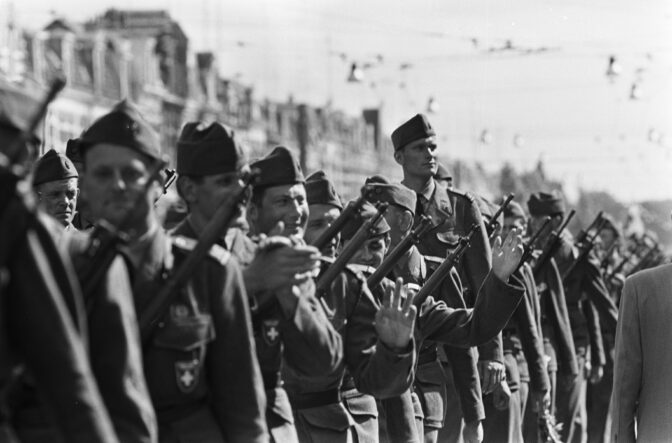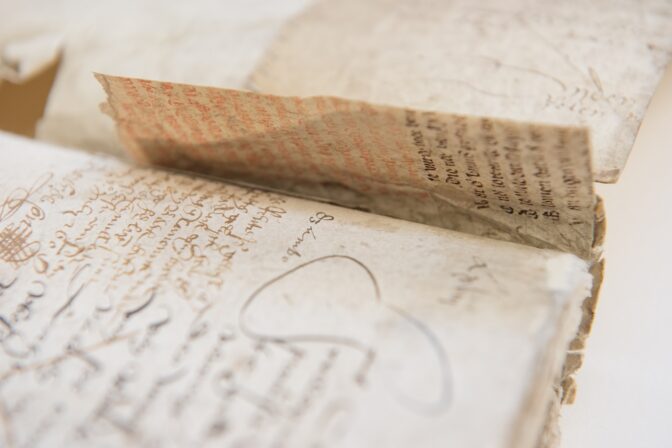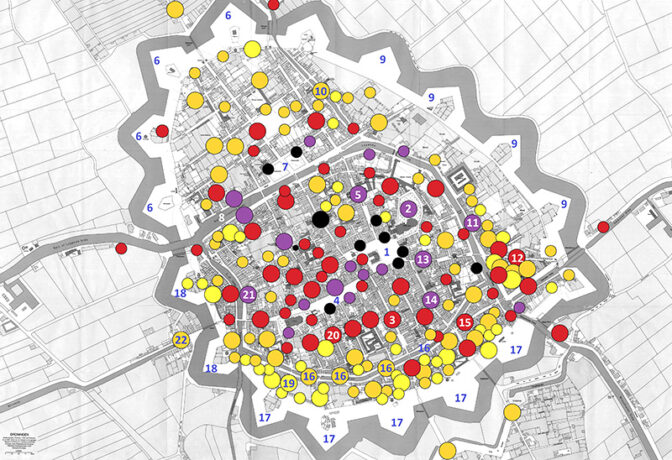Here is an overview of the new sources, projects, and news about archives that were announced last month.
Online sources
- World War II records from all over West Europe are now available at the Arolsen Archives website. After World War II, the Red Cross got the task of determining what had happened to all the displaced persons and notify family members of deaths that occurred during the war. Records about displaced persons, concentration camps, penal institutions, and special collections were turned over to the Red Cross. They are now kept at the Arolsen archives. Many Dutch people who were persecuted by the Nazis and/or who worked for the resistance can be found in these records.
- Military enlistment registers of Nijmegen (1815-1888) are now available at the Nijmegen City Archives website.
- “Special” population registers of Amsterdam (1864-1935) have been indexed and scanned and are available at the Amsterdam City Archives website. The special registers include people living in mental asylums, in fire stations, in caravans (travelers), lodgers, and people living on ships.
- Dutch Reformed membership records of Harlingen are now available via AlleFriezen.
- Population registers after 1919 from West-Friesland are now partially back online. They were removed last year after the GDPR privacy law went into effect. Thanks to indexing efforts, scans that have no information about people born less than 100 years ago are now available online again at the West-Fries Archief website.
- One series of the city accounts of Zutphen for 1445-1798 are now available at the website of the Zutphen Heritage Center.
- Registrations for the Nijmegen Four Days Marches (1921-1939) can be found at Open Archives. The Four Day March is an annual event where people walk 10, 20, or 50 kilometers per day. Many organized groups, such as soldiers and scouts participate in the event.

Arrival at the Four Day March of Nijmegen, 1965. Credits: Eric Koch, collection Nationaal Archief (CC-0)
Websites
- The Brabants Historisch Informatie Centrum launched a website about the air war over Brabant in 1940-1945. The website wants to tell about how the Germans and allied forces fought in the air over Noord-Brabant during World War II, including about the planes that went down and the people who helped crashed pilots. The website has many photos and invites people to contribute their stories.
Archives
- An unknown fragment of the medieval manuscript Spiegel Historiaal was found in the binding of a court register of Hilvarenbeek. The rare find will be the topic of an upcoming conference. (Source: Regionaal Archief Tilburg)
Projects
- The records of the Aldermen’s Court of Loon op Zand are being digitized and will become online at the Regional Archives of Tilburg website by the end of 2019. The records have been removed from the reading room to get them scanned.
- The Groningen Archives is digitizing the population registers of all municipalities in Groningen from 1850 to 1900. The records will become available via AlleGroningers.
- The Groningen Archives is starting a volunteer indexing project to index the Groningen Dutch Reformed Membership records before 1811. The results will become available on AlleGroningers. Volunteers can report to the email address in the announcement.
- The register of doors and windows of the city of Groningen from 1810 has been mapped, showing where the largest houses were. In this period, a tax was levied on doors and windows as a form of wealth tax.



